Who's Who of "Selma"
MLK

Over Martin Luther King Jr. Day weekend, protesters across the country sought to reclaim the radical, activist legacy of Dr. King by taking to the streets in protest of ongoing police brutality. Frustrated that his work has too often been softened and sanitized, protesters stressed that Dr. King’s original tactics, which were often direct and controversial, are desperately needed today if the United States is to effect lasting change.
“[Dr. King] has become more of a vague idea and people forget that he was a person that marched the streets,” one protester in Washington D.C., Caroline, said.
“They need to be talking about real activism and real change and not just having a day off work and saying the name.”
Another woman, Janelle, described Dr. King as “a great leader but also part of a larger movement that is still trying to combat the same injustices that he was fighting against.”
Marching with three children under the age of ten, Janelle explained their presence bluntly.
“This problem isn’t going to go away,” she said.
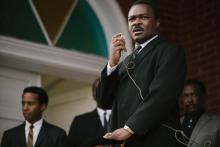
On the Rev. Martin Luther King Jr.’s birthday (Jan. 15), just as the civil rights drama Selma was nominated for best picture in the Oscar race, one fact of American life was little changed.
Sunday morning remains, as King once observed, the most segregated hour in America. And, against a backdrop of increased racial tensions, new research shows that most Americans are OK with that.
Two in three (66 percent) Americans have never regularly attended a place of worship where they were an ethnic minority, according to new polling analysis released by LifeWay Research.
“People like the idea of diversity. They just don’t like being around different people,” said Ed Stetzer, executive director of the Nashville, Tenn.-based research firm.
“Maybe their sense is that church is the space where they don’t have to worry about issues like this,” he said. But that could be a problem, because, Stetzer said, “If you don’t like diversity, you’re really not going to like heaven.”
Vincent Gordon Harding and Rosemarie Freeney Harding: A Biographical Timeline
IN JANUARY 2012, I was driving in the flatlands of northern Indiana with historian and democracy activist Vincent G. Harding. I was Harding’s tour guide and chauffer for the week. As we drove he asked me what I hoped to happen at an upcoming meeting. “We’re open to whatever you feel inspired to share with us,” I responded. He replied, “Joanna, this is your community. I want to hear from you what is important in this conversation. You know better than I what your community needs to be discussing right now.”
This was the organizational formula Vincent Harding had been using for more than 50 years: Bring people together, remind them of the strength of their roots, listen to their wisdom, and connect them to a broader biblical and historical movement.
Harding, who died May 19, 2014, was a lifelong activist for the development of a compassionate, multireligious, multiracial democracy and a leading historian in the black-led freedom struggle in the U.S. Harding and his spouse, Rosemarie Freeney Harding, who died in 2004, had been colleagues of Martin Luther King Jr. and Coretta Scott King in the 1960s, and Vincent later became the first director of the Martin Luther King Jr. Center in Atlanta.
When historian, author, and longtime friend P. Sterling Stuckey heard about Harding’s death, he said he found it hard to believe because “Vincent was larger than life.” Harding’s effect on movements for justice in the U.S. was far-reaching. He was a convener of scholars, activists, artists, youth, and people of faith. He believed that transformation happened when everyone was engaged and contributing—and he believed that everyone had something to offer in the creation of a compassionate, multiracial democracy.
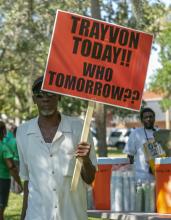
WE HAVE AMPLE reason to weep of late: war in Gaza, crisis in Syria, ISIS in Iraq, the slaying of five unarmed black men in one month at the hands of U.S. police officers, and the demise of congressional immigration reform.
Scripture calls us to cross over into the valley of lament at times such as these. Yet most of us are more comfortable on the plateau of rage or the plain of apathy.
I once led a training on lament and racial reconciliation. Twenty college students sat in the living room of a ministry house as I recited a lament from Jeremiah, the “weeping prophet”: “O that my head were a spring of water, and my eyes a fountain of tears, so that I might weep day and night for the slain of my poor people!” (9:1).
I spoke of the impact of racial injustice in our nation and on our campuses. I recounted slave narratives to the students—stories that had brought me to tears privately. Yet, when the last word was read, the students sat silent with glazed eyes staring back at me.
I didn’t get it. The whippings of human beings, the children separated from their mothers and fathers, the hands, feet, and lives lost in the midst of America’s darkest hours—these things happened. How could we not lament?

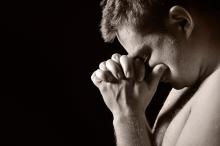
I’m asked pretty often what I see for the future of organized religion, and Christianity in the West in particular. Given the fact that I am in the process of completing a book called “ postChristian ,” some people make assumptions that I am convinced it’s all going away.
Granted, Christianity has experienced precipitous decline, and the drop-off likely is far from done. Before we see any leveling-off within the institutional church, there will be many more church closures, consolidation of shrinking denominations, and an increasing number of people called to, and already working in, ministry who supplement their income with some non-ministerial side vocation.
So what do we, who still operate within the system of a declining religion, do about our situation? Some of this has little or nothing to do with anything the church has done or can do. Our increasingly distributed, decentralized, and accelerated culture has forced churches out of the center of American social life. Also, changing cultural norms have made it much more socially acceptable not to go to church.
I’ve long suggested that many of the folks filling the pews during the so-called heyday of the Church some 40 to 60 years ago were there under some duress. They went because of community pressure to do so, because their spouses made them, or because it was a great place to do business networking. But honestly, were we any better off as a faith to have our buildings full if the folks who were there didn’t really want to be there?
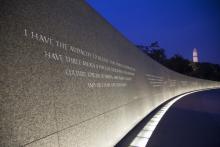
Prophets are always asking questions. Tough questions. Unsettling questions. Questions that they pose to themselves, then try to answer by how they live.
Questions such as:
What’s in our hearts? Are we concerned too much about ourselves and too little about others? Do we believe in love? Why do we give in so readily to bitterness and hatred?
Why do so few have so much, while so many have so little? Aren’t we all diminished by the poverty, discrimination, violence, and the various injustices in our world? Why do we glamorize violence and weapons as solutions to our problems?
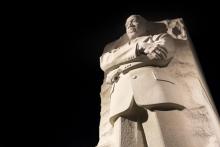
Are we waiting for another Dr. King? As I collect my thoughts to write these words, I’m mindful that I don’t honestly know what discrimination is. I have never (consciously) experienced discrimination because of my race, the color of my skin, or where I come from. I have never had to say, like Solomon Northup, “I don’t want to hear any more noise.” In the film, 12 Years a Slave, Solomon refers to the cry of those being beaten and separated from their children. I speak here with a profound sense of respect and fear. Who am I, or maybe even you who read, to speak about a tragedy and a pain that we have never experienced? I only speak out of a sense of duty and a calling from God.
Dr. King wrote, “So many of our forebears used to sing about freedom. And they dreamed of the day that they would be able to get out of the bosom of slavery, the long night of injustice … but so many died without having the dream fulfilled.” (A Knock at Midnight, p.194)
To this day, millions of African Americans in our country still dream about getting out of the bosom of slavery. Slavery today is masked behind the social, financial, political, and even religious systems that deny the dignity and full integration into these systems to people of color. Solomon Northup cries out in the film saying, “I don’t want to survive, I want to live.” The struggle of African Americans is a struggle to live. So far, they have only survived.

What’s happening in Syria is awful. You see the pictures and your heart breaks. It’s horrific. Lakhdar Brahimi, U.N. special envoy to Syria, said Wednesday that, “With what has happened on the 21st of August last week, it does seem that some kind of substance was used that killed a lot of people: hundreds, definitely more than a hundred, some people say 300, some people say 600, maybe 1,000, maybe more than 1,000.”
The Huffington Post has a slider with the title, Syria War In August (Warning: Graphic Images). Of course, every life matters, but as a father with three young children, seeing the picture of a Syrian man crying out in pain as he carries the body of a young girl – words fail.
Violence and Justice
My wife knows that we promote nonviolence at the Raven Foundation, and that I lean toward pacifism. Wednesday night, as we discussed Syria and Bashar al-Assad’s continued threats of violence, she asked me, “Well, what do we do if a government uses chemical weapons against its own people?”
The question haunts me. These are times that try the soul of anyone committed to nonviolence. We all want justice. We all want the violence to stop. We don’t want any more people to cry in pain as they carry the body of a lifeless child.
And so President Barack Obama seems to be ramping up the war machine. Ironically, as he plans for possible military strikes, on Wednesday he delivered a talk honoring the 50th anniversary of Martin Luther King Jr.’s speech “I Have a Dream.” As we hear the drum beat of war, we are reminded of King’s dream of justice. In his speech King said:
We must not be guilty of wrongful deeds. Let us not seek to satisfy our thirst for freedom by drinking from the cup of bitterness and hatred. … We must not allow our creative protest to degenerate into physical violence. Again and again, we must rise to the majestic heights of meeting physical force with soul force. … [We] will not be satisfied until justice rolls down like water and righteousness like a mighty stream.
Our popular understanding of “justice” is mired with violence. For King, true justice was always based on love and nonviolence, because violence always carries with it a fatal flaw. As he wrote in his book Strength to Love, “Violence brings only temporary victories; violence, by creating many more social problems than it solves, never brings permanent peace” (18).
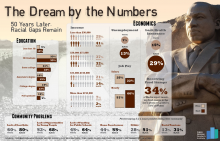
Yesterday’s “Let Freedom Ring” ceremony in Washington, D.C., honored the nation's substantial advances in racial equality in the fifty years since Dr. Martin Luther King, Jr. delivered his now-iconic “I Have a Dream” speech.
But events this year — from the Supreme Court gutting the Voting Rights Act to the House eliminating funding for food stamps to the Trayvon Martin trial — are posing serious challenges to our national progress towards true equality for all.
An infographic from the Public Religion Research Institute, "The Dream by the Numbers," highlights systemic inequalities that still work against communities of color today. The statistics are grim: black communities are unemployed at nearly double the rate of white communities. Fewer than 20 percent of black youth will receive a college or graduate degree. Twice as many blacks lack health insurance as whites. And nearly 70 percent of blacks surveyed mentioned “lack of opportunities for young people” as a top concern for their community.
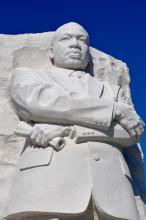
If there was ever a fear that the church is splintered, apathetic or dull, the passion and unity on display at the “Why We Can’t Wait” May Revival on Pentecost Sunday earlier this month proved a direct contradiction to that assertion.
The second of five events of Washington DC’s Church-Wide Response to the New Jim Crow brought a diverse group of 50 faithful people to Capitol Hill’s Lutheran Church of the Reformation for an afternoon of song, prayer, worship, education on nonviolence and mass incarceration, and call-to-action to work and pray for a better church and a better world.
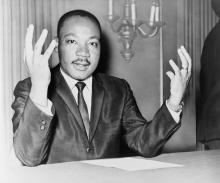
This August will mark the 50th anniversary of Martin Luther King’s “I Have a Dream” speech, and there will rightly be much remembrance and celebration of its place in American history. But there is another anniversary that our nation, and especially its Christians, would do well to acknowledge, investigate, and ruminate.
Forty-five years ago yesterday, Dr. King arrived in Memphis, Tenn., to support a sanitation workers’ strike seeking to unionize. He was assassinated the next day — the anniversary we today remember — and in a sad irony our nation began the sanitation of his legacy. Indeed, King’s decision to join the Memphis struggle was just one of many acts that clash with what David Sirota calls the “Santa Clausified” image of King that we pass to our youth.

President Obama will publicly take the oath of office on two Bibles once owned by his political heroes, Abraham Lincoln and the Rev. Martin Luther King Jr. One Bible was well read, but cited cautiously, the other granted scriptural sanction to the civil rights movement.
When Obama lifts his hands from the Bibles and turns to deliver his second inaugural address on Monday (Jan. 21), his own approach to Scripture will come into view. Characteristically, it sits somewhere between the former president and famous preacher.
His faith forged in the black church, Obama draws deeply on its blending of biblical narratives with contemporary issues such as racism and poverty. But like Lincoln, Obama also acknowledges that Americans sometimes invoke the same Bible to argue past each other, and that Scripture itself counsels against sanctimony.
Obama articulated this view most clearly in a 2006 speech, saying that secularists shouldn’t bar believers from the public square, but neither should people of faith expect America to be one vast amen corner.
“He understands that you can appeal to people on religious grounds,” said Jeffrey Siker, a theology professor at Loyola Marymount University in California who has studied Obama’s speeches. ”But you also have to be able to translate your case into arguments that people of different faiths, or no faith, can grasp.”
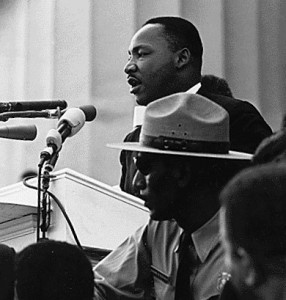 At the dedication ceremony for the Martin Luther King, Jr. Memorial, at least two speakers -- the Rev. Bernice King, Martin Luther King's daughter, and the Rev. Jesse Jackson, one of King's lieutenants -- reminded us that at the end of King's life he was planning the Poor People's March
At the dedication ceremony for the Martin Luther King, Jr. Memorial, at least two speakers -- the Rev. Bernice King, Martin Luther King's daughter, and the Rev. Jesse Jackson, one of King's lieutenants -- reminded us that at the end of King's life he was planning the Poor People's March
The Poor People's March is an ancestor to the current Occupy Wall Street movement that we see breaking out across the globe today. The idea was to bring poor people from across the color line -- white, black, brown, red, yellow -- to Washington to call attention to the importance of economic justice. King understood that economic justice -- distributive justice -- was not a matter of race in the United States.
It was true then, and it is true now that African Americans and Latino/as suffer disproportionately from income inequality. But it is important to remember that people of all colors suffer from the corrosive effects of income inequality. Some of the poorest communities in the country are European American. The poorest states in the United States with some of the worse educational and health care outcomes are states in the former confederacy.
Income inequality has increased since 1968. So the question that insists upon being answer is this: Why has income inequality worsened between 1968 and today?
"I had no idea Martin Luther King was a radical!" These shocked words were spoken to me this weekend after an activist training I'd been running in Sydney. I had the privilege to be part of the Make Poverty History "action lab" -- a "teach-in" for 15 young anti-poverty activists chosen from each state of Australia.